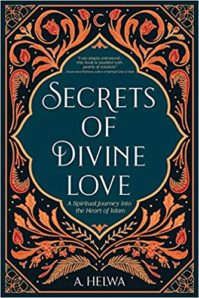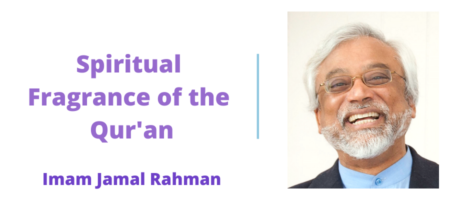By A. Helwa
“Don’t despair over things that pass you by nor exult over blessings that come to you.” (Qur’an 57:23-25)
The Qur’an calls us to be grateful for our worldly gifts, but to not be so attached to this fleeting realm that we lose sight of our eternal Lord. We must not forget that our bodies are just vehicles that God has given us as a loan; and this world is just a bus stop along the way from God back to God. This worldly life is not forever. The impermanence of life is beautifully depicted in the following story: A mystic from Kufa set out on a journey to meet the spiritual master Abu Hussein for the first time. When the mystic walked into Abu Hussein’s house he was surprised to find no furniture. The perplexed seeker asked the holy man, “Why does your house have no furniture?” The master smiled and ecstatically asked, “Why didn’t you bring furniture with you?” The confused seeker said, “I am a traveler. What use would furniture do me?” The master laughed and said, “Ah, yes, my friend, but I too am a traveler. I will only be on this Earth for a few short days and then I will return back to my real home!”

Our real home is not one money can buy—our real home is with God. We are not residents of our houses, countries, or even our bodies— rather, we are visitors. And just as no visitor would decorate a hotel room they were staying in for only a few days, do not waste time obsessing over the adornments of a life on Earth that you do not own; instead, decorate your spirit with good deeds, for that is the only currency that transcends time and space. It is only when we kill our attachment to the mortal desires of the self that we are freed from anxiety around losing what is perishing. This is why the mystics say, “Die before you die.” Spiritual masters across many traditions call us to kill our attachments to the illusions of this life— our ego, our reputation, our pride, and our material possessions—because the more we let go of this world, the higher we will rise.
In essence, this is a voluntary death of illusion, where we are drawn to the light of the Divine until all separation is extinguished. This is the station of fana fi Allah, or dissolving the separate self into the infinite ocean of God’s love. Between the death of the ego and the death of the body is when we may truly experience life. However, it is important to remember that spiritual rebirth is not an event, it is a process. We are not called to reject the blessings of our worldly life, but rather, we are reminded to not become enslaved by our love. As the 7th century mystics Imam Ali says, “Detachment is not that you should own nothing, but that nothing should own you.”

This blog is an excerpt from A. Helwa’s recently published best-selling book, “Secrets of Divine Love: A Spiritual Journey into the Heart of Islam.” Her book is available on Amazon.com
#1 Best Seller
About A. Helwa
A. Helwa believes that every single person on Earth is deeply loved by the Divine. She is a writer who has inspired hundreds of thousands of readers through her passionate, poetic, and love-based approach to spirituality. Her popular blog @quranquotesdaily, was established while obtaining her Masters in Divinity, as a means of helping others overcome personal and spiritual struggles on their journey of experiencing divine love.
With over 15 years of experience writing and speaking on Islam and spiritual development, A. Helwa draws from her personal experiences and traditional sources to help her readers access ‘Divine love in everyday life.’
